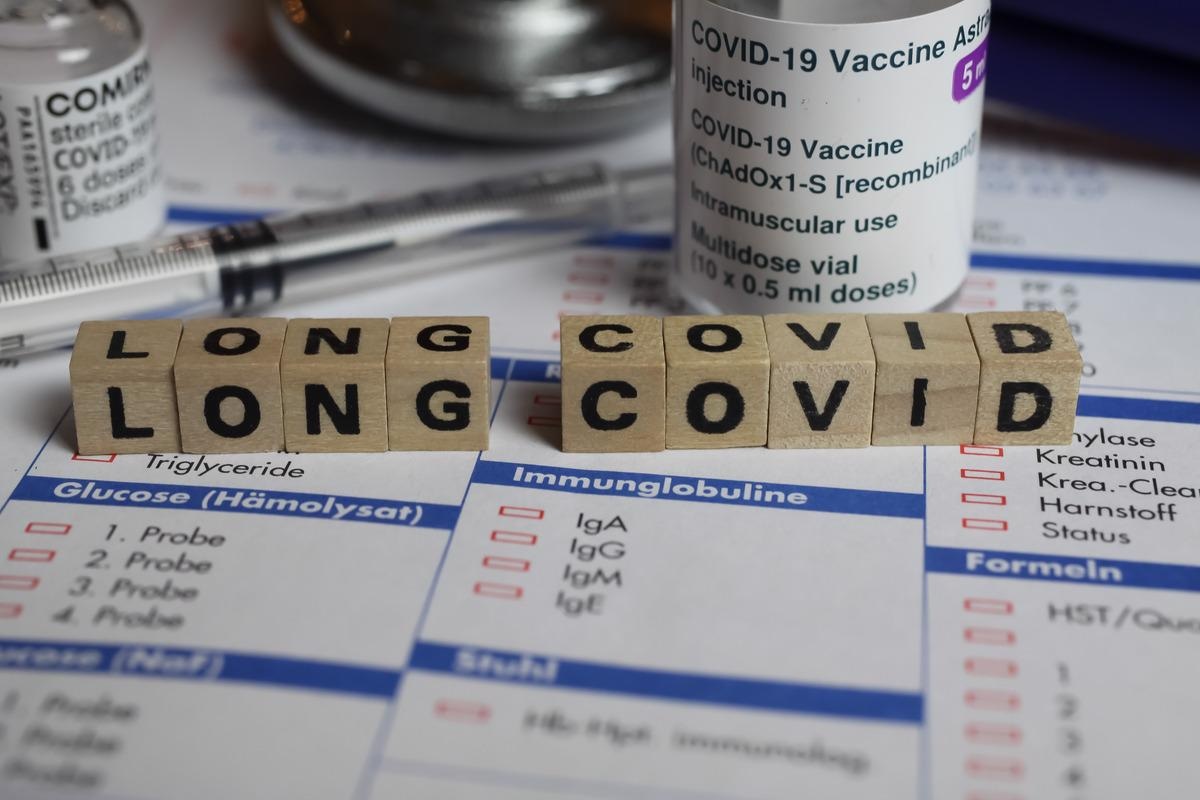
In a recent study published in the Clinical Infectious Diseases journal, researchers assessed the impact of long coronavirus disease 2019 (COVID-19) on C-C chemokine receptor-5 (CCR5) and immunosuppression.

Long COVID is a condition where COVID-19 symptoms persist for months and is characterized by over 203 symptoms affecting more than ten organ systems, making the syndrome highly complex. However, various studies have reported the association of CCR5 with long COVID-19.
About the study
In the present study, the researchers investigated the impact of leronlimab, which is a CCR5-binding humanized immunoglobulin G4 monoclonal antibody, on CCR5 surface cell levels during long COVID.
The team conducted an exploratory trial comprising 55 individuals diagnosed with long COVID. These participants were randomly assigned to be administered subcutaneous doses of either 700 mg of leronlimab or saline placebo per week for eight weeks. The participants receiving the placebo had an average age of 51.6 years compared to the treated group, with an average age of 45.5 years. The team compared the changes occurring in the 24 symptoms observed in the drug-treated and the placebo participants.
The primary endpoint of the study included a numerically negative change in the severity of symptoms for 56 days, which indicated improvement in symptoms. The symptoms were scored as 0–4 or 0–3, while the composite symptom scores were not weighted. The exploratory endpoints included alterations in the cell surface levels of peripheral blood leukocyte CCR5, plasma cytokines, and immune cell phenotypes.
Results
The study results showed that the mean symptom score changes from day 30 to day 56 were -16.0 in the leronlimab-treated cohort and -12 in the placebo group. For most of the symptoms, a higher number of drug-treated participants had reduced symptom severities than the placebo-treated participants.
The team also observed a significant increase in the cell surface levels of CCR5 from baseline to day 56 in the individuals treated with leronlimab but not in the participants from the placebo group. Among individuals who improved after receiving either the drug or the placebo, the cell surface levels of CCR5 also showed substantial improvement from baseline to day 56 in the drug-treated group and not the placebo-treated cohort.
Moreover, the individuals who had received the placebo had no remarkable differences in the cell surface levels of CCR5 from the baseline to day 56. The team also found no differences in the levels of major immune cells at baseline between the individuals who did and did not report a symptom improvement from either of the study groups. Notably, treatment with leronlimab was correlated with an increase in important immune cells, including T cells, and a decrease in interleukin-10 and C-C chemokine ligand-2 (CCL-2).
Conclusion
The study findings showed that the immune down-modulation caused by long COVID was significantly reversed by treatment with leronlimab. The researchers believe that further extensive studies can ascertain the mechanism of CCR5 in the manifestation of long COVID.
- Gaylis, N. et al. (2022) "Reduced Cell Surface Levels of C-C Chemokine Receptor 5 and Immunosuppression in Long Coronavirus Disease 2019 Syndrome", Clinical Infectious Diseases. doi: 10.1093/cid/ciac226. https://academic.oup.com/cid/advance-article-abstract/doi/10.1093/cid/ciac226/6572226?redirectedFrom=fulltext
Posted in: Medical Science News | Medical Research News | Disease/Infection News
Tags: Antibody, Blood, Cell, Chemokine, Coronavirus, Coronavirus Disease COVID-19, covid-19, Cytokines, Immunoglobulin, Immunosuppression, Infectious Diseases, Interleukin, Leukocyte, Ligand, Monoclonal Antibody, Placebo, Receptor, Syndrome

Written by
Bhavana Kunkalikar
Bhavana Kunkalikar is a medical writer based in Goa, India. Her academic background is in Pharmaceutical sciences and she holds a Bachelor's degree in Pharmacy. Her educational background allowed her to foster an interest in anatomical and physiological sciences. Her college project work based on ‘The manifestations and causes of sickle cell anemia’ formed the stepping stone to a life-long fascination with human pathophysiology.
Source: Read Full Article